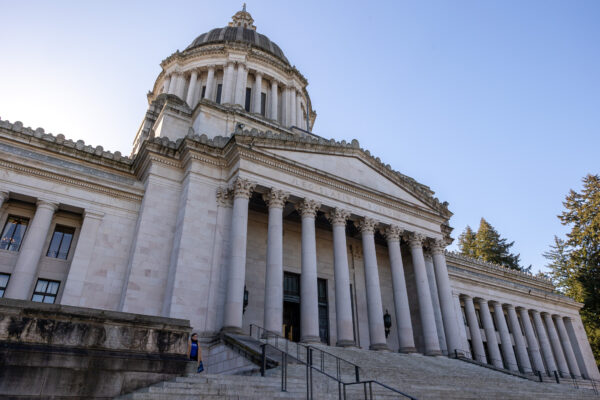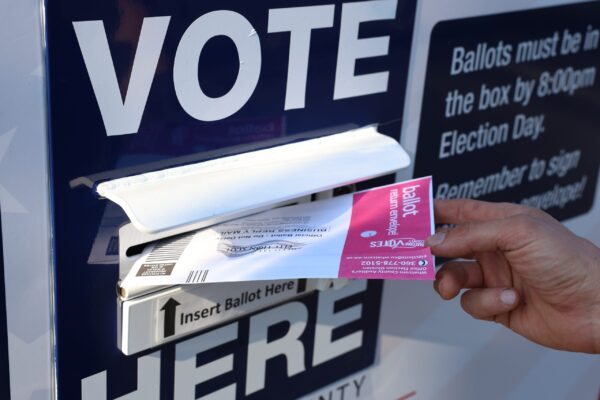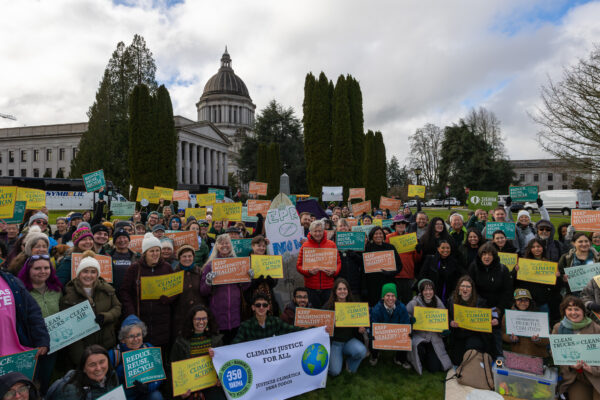Washington Conservation Action (WCA) is committed to amplifying the voices of our partners and of our communities. In that spirit, we are beginning a series of Q&A blogs featuring candidates and elected leaders connected to our organization from around the state.
Two years ago, Adison Richards lost the election for state representative in the 26th District by only 756 votes. This year, his opponent in that campaign, Republican Rep. Spencer Hutchins, has decided to step down for personal reasons. Richards has deep ties to the 26th District. He grew up on the Kitsap Peninsula, went to Peninsula High School in Gig Harbor and now lives in Bremerton. As an attorney, Richards has worked for the Northwest Justice Project, representing victims of domestic violence and human trafficking. He now works at Kitsap Legal Services, practicing housing law. In November, Richards will face Jesse L. Young in the General Election.
Washington Conservation Action has endorsed Richards because of his commitment to environmental, racial and economic justice.
This is your second run for state representative. What motivates you?
I’m motivated by a deep sense of duty to serve my community and ensure that our state government operates effectively and responsibly. After my first campaign, it became even clearer to me that we need leaders who prioritize fiscal responsibility, individual freedoms, and pragmatic solutions to the issues we face. I’m running again because I believe in promoting policies that support small businesses, protect our environment, and strengthen public safety—all while ensuring that our government remains accountable to the people it serves.
Why did you seek WCA’s endorsement? How did our endorsement affect your campaign?
I sought WCA’s endorsement because WCA recognizes the importance of balancing economic growth with environmental stewardship. Your endorsement has helped highlight my commitment to practical, common-sense solutions that protect our natural resources while also supporting our economy. The backing of WCA has been crucial in reaching voters who value both conservation and economic opportunity.
If you’re successful in November, what do you hope to accomplish as a legislator?
As a legislator, I plan to focus on policies that promote economic growth, protect individual liberties, and ensure government accountability. My priorities include supporting job creation, especially in small businesses, advancing responsible environmental policies that don’t overburden taxpayers, and enhancing public safety. I want to work on reducing unnecessary regulations, improving educational outcomes, and ensuring that our state remains a place where families can thrive and businesses can grow.
What environmental issues will you prioritize?
I will prioritize environmental issues that align with practical and economically sound approaches, such as promoting clean energy in ways that support job growth and maintaining our natural resources without imposing excessive regulations on businesses. I believe in finding solutions that balance environmental protection with economic opportunity. This includes focusing on conservation efforts that protect our state’s natural beauty while also ensuring that our industries and communities are not unfairly burdened.
WCA seeks to address the connections between environmental justice and racial and economic justice. You’ve worked on these issues in your legal practice. How do you view these connections?
I believe that environmental justice should be about ensuring that all communities have access to clean air, water, and green spaces without imposing undue burdens on economic growth or personal freedoms. It’s important to recognize that overregulation can stifle economic opportunity, particularly in communities that need it most. In my legal practice, I’ve worked to find solutions that protect the environment while also promoting job creation and economic development. I believe that we can address environmental concerns in a way that supports, rather than hinders, the economic well-being of all communities, ensuring that no one is left behind.
You have a deep history with, and deep ties to, your community. What role do you think communities can play in regional, national, and global problems such as climate change?
Communities are the backbone of any meaningful change, especially when it comes to challenges like climate change. Local action—driven by the people who live and work in these communities—can inform practical solutions that reflect local values and needs. I believe in empowering communities to take the lead on these issues, ensuring that any efforts to address climate change are rooted in common sense and respect for individual liberties. Local initiatives can serve as models for larger-scale solutions, and by prioritizing community-driven approaches, we can tackle these challenges in a way that strengthens, rather than burdens, our communities.
Written by Heather Millar, Content Manager
###
Make sure to vote in the 2024 General Election on November 5. Vote for Adison Richards and check out our full list of endorsements here.
Your donation ensures a sustainable future.


